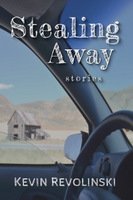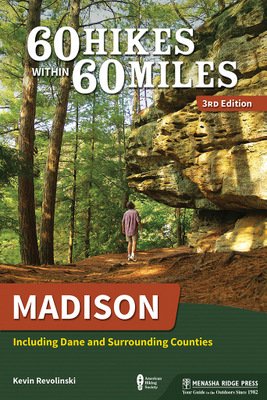2011 Reading in Review: Book Recommendations

Every year I promise myself to read more. In 2011 I tried to keep a running list of what I read, plus a side-column box showing the most recent books. I figure I need more time to disconnect from the computer and outside distractions and sharpen my focus, not to mention the thoughts, knowledge, and ideas and pure entertainment value of a book. (My most recent read led me to a quote from Pascal: “All human evil comes from a single cause, man’s inability to sit still in a room.”)
Here are what I consider the best 6 books I read last year. But you can also see the complete 2011 reading list as well as 2010’s reading recommendations.
A Couple History Books
Top of my list for fascinating history stories is Stacy Schiff’s Cleopatra: A Life. (You can see a more in-depth review here) A trip to Milwaukee’s temporary Cleopatra exhibit and a National Geographic magazine article got me thinking about Cleopatra, and then a neighbor happened to tell me she was currently reading this great new book. And that recommendation led me to this biography of Egypt’s remarkable queen based on what sources, best guesses, and competing theories we have available.
It’s way more interesting than the rather simplistic view of the seductress of Hollywood. It’s a history book with a good plot and a dramatic ending. A worthy read before a trip to Egypt (or even Rome since so much of the story also involves Julius Caesar, Mark Antony, and an expanding Roman Empire). Forget what you remember about dozing off in history classes, Schiff won the Pulitzer Prize and tells a great story. At some points I cringed and rooted for characters like I was watching a movie, the outcome of which I didn’t know.
Another history book that is both a great armchair read and a super travel background resource is The Ornament of the World: How Muslims, Jews and Christians Created a Culture of Tolerance in Medieval Spain by Maria Rosa Menocal. That period of Spain’s history that is often just referred to as the Moor Invasion is given a much richer and more just review.
I have not been to Spain but Andalusia moves way up my list after reading this book. The cultural and architectural developments that were going on during that time create a high point in human history, and much of that was fostered by the general tolerance of the three cultures that make up the “people of the Book.” I’d call it an important read, especially when there are still so many people who argue that peace, tolerance, and cooperation among these folks are impossible. So not true. And here you have an examination of the proof of that.
A Couple Novels
I have my former professor and college advisor to thank for steering me to David Mitchell. I picked up Cloud Atlas and read it on my trip to Tokyo. It was one of the more extraordinary reads that I’ve had in several years. Mitchell nests several seemingly unrelated stories together, starting with one in the 19th century then moving forward through a few to a distant post-apocalyptic future… and then back through them again to end where he began — like one of those Russian matryoshka dolls. It’s a page turner, his language is rich, the voices varied, the background knowledge required for each story (19th century sailing, classical music composition, etc.) is stunning. I will read him again for sure. A movie version is coming out… starring Tom Hanks. I expect the worst.
I’ve had several trips into Vietnam in the last couple years, and I love the place. For better or for worse (certainly the latter), many Americans think of Vietnam as a War History. Sometimes I am guilty of that as well. But a good story has to have conflict, vibrant characters. A tragedy should force you to think about bigger things than the particulars; it provides a spectator’s view of human nature, of the disasters we create, the solutions we find, the humanity that lies somewhere in the chaos or even the savagery. The great story brings you face to face with it, makes you feel it. What setting is more demanding on our souls than life and death?
The Lotus Eaters is a novel by Tatjana Soli set in the American War (that’s what many Vietnamese call it) and the protagonist is Helen Adams a young woman who heads to Vietnam with her camera to join the photojournalists there. (There were a very few female photogs allowed into the battle zones and the author has drawn a bit on some research in that). The story starts at the fall of Saigon with a friend dead, another severely wounded, and the chaos of everyone trying to get out. Then it goes back to her uncertain mission when she arrived, the relationships she formed, the broadening view of the war and her purpose and the purpose of the photojournalism.
During the Red Shirt troubles in Bangkok, I felt the urge to run out with the camera and capture some dangerous moments (and excepting a couple, I resisted, especially at the behest of Peung and her family when my own sense failed me). But I felt that adrenaline surge for it and saw the handful of photogs who were really passionate about getting in there with a flak jacket and helmet. In the novel, while we are admiring this urge to bear witness we also see how the photo becomes more important than the human victims. It’s both thought-provoking and compelling.
A Couple… Farming Books???
I had quite a food-related year last year. I did a homestay at a hill-tribe village in Northern Thailand where coffee is produced. I was blown away by the efforts of a brilliant young man who was doing his best to lead his people to an organic method and create a business model that would give greater economic rewards and power to the people producing the coffee. He can talk for hours about matters of agriculture and the coffee business and he gave me a book recommendation that I was fortunate to find back in Madison when I got home: The One-Straw Revolution by Masanobu Fukuoka. I can’t recommend it enough. A Japanese farmer back in the 1970s wrote this chronicle about what he learned from over 20 years of defying the big agriculture trends, the ones that eventually became our current model that stresses soils and involves heaps of chemical fertilizers and pesticides. His methods are so simple he calls it “do-nothing” farming (a slightly tongue-in-cheek misnomer as there is still much work to be done, but minimal interference with the land) outdoes the methods of his time. But what makes me recommend this so highly is the philosophy aspect of it. It’s a subtle statement about life and living as well, a rather Buddhist sort of approach to things.
Finally, I have to give a plug to another work also on the subject of agriculture. While this one is not quite so philosophical and does mostly just talk about some crop experiments, it is a short read, simple, and yet rather revolutionary. Can you imagine not plowing the fields?? The Plowman’s Folly by Edward Faulkner argues that there is absolutely no scientific basis for the need or even the wisdom of turning over a field. The inability of his professors at the university to answer his question Why do we plow? lead him to this experiment, and he gets some impressive results. I’ve been told someone near my home is giving this a try with success. I hope to meet him and find out more in 2012. This book dates to the 1940s, by the way, and with a few exceptions was ignored. We have to sell big farm machinery after all. This book has been out of print for a long time — you can see old battered copies for sale on Amazon and I got mine from interlibrary loan, one of two copies at the U of Wisconsin-Madison. But good news: it is being reissued in February 2012 as you can see on the image link here.
Got some book recommendations of your own? Please share them below in comments. I’m always looking for more reads!


 ORDER YOUR COPY TODAY!
ORDER YOUR COPY TODAY! ORDER YOUR COPY TODAY!
ORDER YOUR COPY TODAY!
Thanks for the recommendations, just downloaded One-Straw Revolution on my iPad. Happy New Year!
Hey Kat! What’s up? I hope you like it. I walked around gushing about it for a few weeks afterward. Some stuff stuck with me beyond the wisdom of the farming methods. Even just the wisdom of the One Straw anecdote (you’ll see)
We are ordering that Cleopatra book! Looks great! Thanks for the tips!
Awesome! Let me know how you like it!
Thanks for sharing. I’ll add Cloud Atlas and The Lotus Eaters to my list (might be a good follow up to the movie The Bang, Bang Club, which I found interesting and explored the psychology of photojournalists in a war zone). Books are the best.
I’ll have to check out the Bang Bang Club, thanks for the recommendation! Chris Hedges’ War Is A Force That Gives Us Meaning is generally about our addiction to war and how we behave before, during, and after, but the author also goes into his own addiction to covering the hot spots. Fascinating albeit kinda glum.